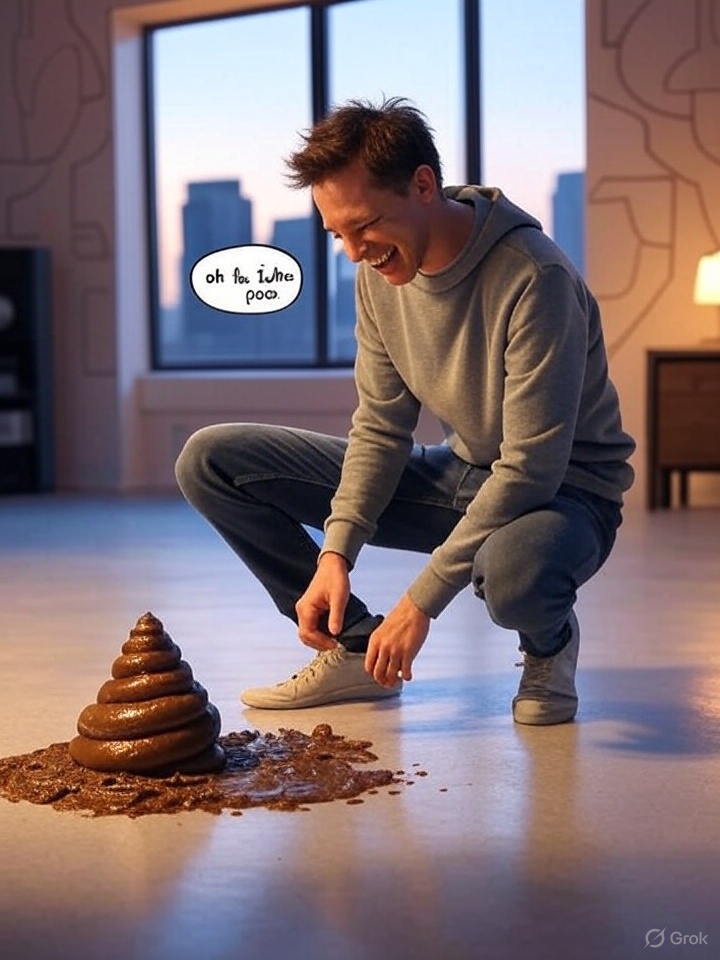A while later, the town's drunkard is passing by the church, and he hears something eerie and melodic. It comes from Beethoven's grave. He leans closer, and the composer's 5th symphony is playing from inside the grave. The drunkard gets scared and runs to the priest. Skeptical, the priest laughs and dismisses the drunkard.
The next day, the drunkard passes by the church and he hears music coming from the grave again. He goes closer to it and hears Beethoven's 4th Symphony. He claims for help until a random lady passes by and, upon hearing the drunkard's reason for crying, she laughs, but starts hearing the music too. They both go to the priest, who agrees to listen, but only if the noises persist on the next day.
The next day, there goes the curious lady to the grave, meeting the drunkard who is already there. They both Beethoven's grave playing his 3rd symphony. They rush to get the priest, who comes and listens. He rushes to get the town's physician, who comes and takes a listen.
He asks if they only realized today the music playing. The lady says she heard in the last day the 4th symphony, and the town's drunkard confirmed he heard the 5th symphony the day before.
The physician takes a listen again, giggles and says there is nothing to worry about, and "it is just a simple process of decomposing."
Joke Poo: The Baker’s Rise
A famous baker died and they buried him near the town’s bakery.
A while later, the bakery owner is walking to work early one morning, and he smells something incredible. It comes from the baker’s grave. He leans closer, and the aroma of freshly baked sourdough is wafting from the freshly turned earth. The owner gets incredibly jealous and runs to the priest. Skeptical, the priest sighs and dismisses the owner’s rantings.
The next day, the bakery owner is near the grave and he smells a new tantalizing scent. He goes closer to it and smells warm, buttery croissants. He pleads for help until a random food critic passes by and, upon hearing the owner’s story, scoffs, but then hesitantly sniffs the air. They both smell the intoxicating aroma. They both go to the priest, who agrees to investigate, but only if the smells persist on the next day.
The next day, there goes the curious food critic to the grave, meeting the owner who is already there, twitching from hunger. They both smell the grave emitting the rich, decadent scent of chocolate lava cake. They rush to get the priest, who comes and inhales deeply. He rushes to get the town’s head chef, who comes and takes a whiff.
He asks if they only noticed the smells today. The critic says she smelled croissants yesterday, and the bakery owner confirmed he smelled sourdough the day before.
The chef takes another deep breath, nods sagely and says there is nothing to worry about, and “it’s just a simple process of rising.”
Alright, let’s dissect this joke and see what comedic gold we can mine.
Analysis:
- Core Premise: The joke hinges on the unexpected and escalating musical performances emanating from Beethoven’s grave, culminating in a darkly humorous, scientifically morbid explanation.
- Key Elements:
- Beethoven: A renowned composer, symbolizing high art and musical genius.
- The Drunkard: A figure of low social status, unreliable and often a source of comedic misunderstanding.
- The Priest: A figure of authority and skepticism, representing the clash between the rational and the unexplained.
- The Lady: A common bystander, adding believability to the joke.
- The Physician: Science, and with it, the natural order of the universe
- The Symphonies: Beethoven’s symphonies, each with a number, creating a countdown effect that builds anticipation.
- Decomposition: The punchline, subverting expectations by offering a grotesque, yet technically accurate, explanation.
- Humor Type: Dark humor, situational irony, and a play on the clash between high culture and bodily functions.
Enrichment Idea: The “Did You Know?”
Let’s take the decomposition angle and inject a bit of Beethoven’s biography.
“Did you know… that Beethoven was notoriously particular about his own hygiene? So particular, in fact, that his decomposing body, rather than playing his symphonies in descending order, was actually playing them in ascending order – trying to compose a brand new 10th Symphony from the soil. He probably figured that he had finally found the missing ingredients for his music: rot, worms, and a generous helping of earth.”
Why this works:
- Factual Basis: Beethoven’s alleged hygiene habits are well-documented, adding a layer of truth to the absurdity.
- Twist: We’re subverting the punchline – it’s not simply decomposition, it’s Beethoven composing while decomposing.
- Character Consistency: It keeps Beethoven as the main object of the joke, but giving him a fitting end that suits his role in musical history.
- Heightened Absurdity: Combines the highbrow (a new symphony) with the lowbrow (rot and worms), amplifying the dark humor.
- Comedic Timing: The setup builds to a punchline that’s both unexpected and relatable.


